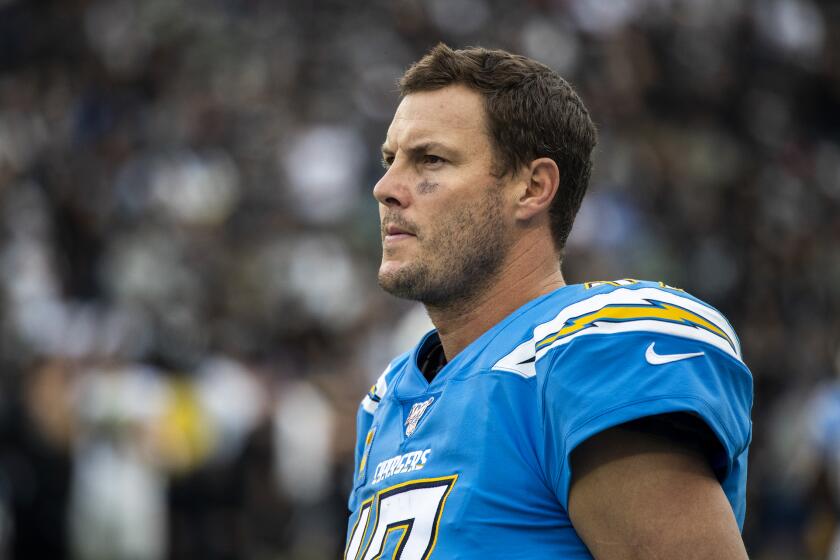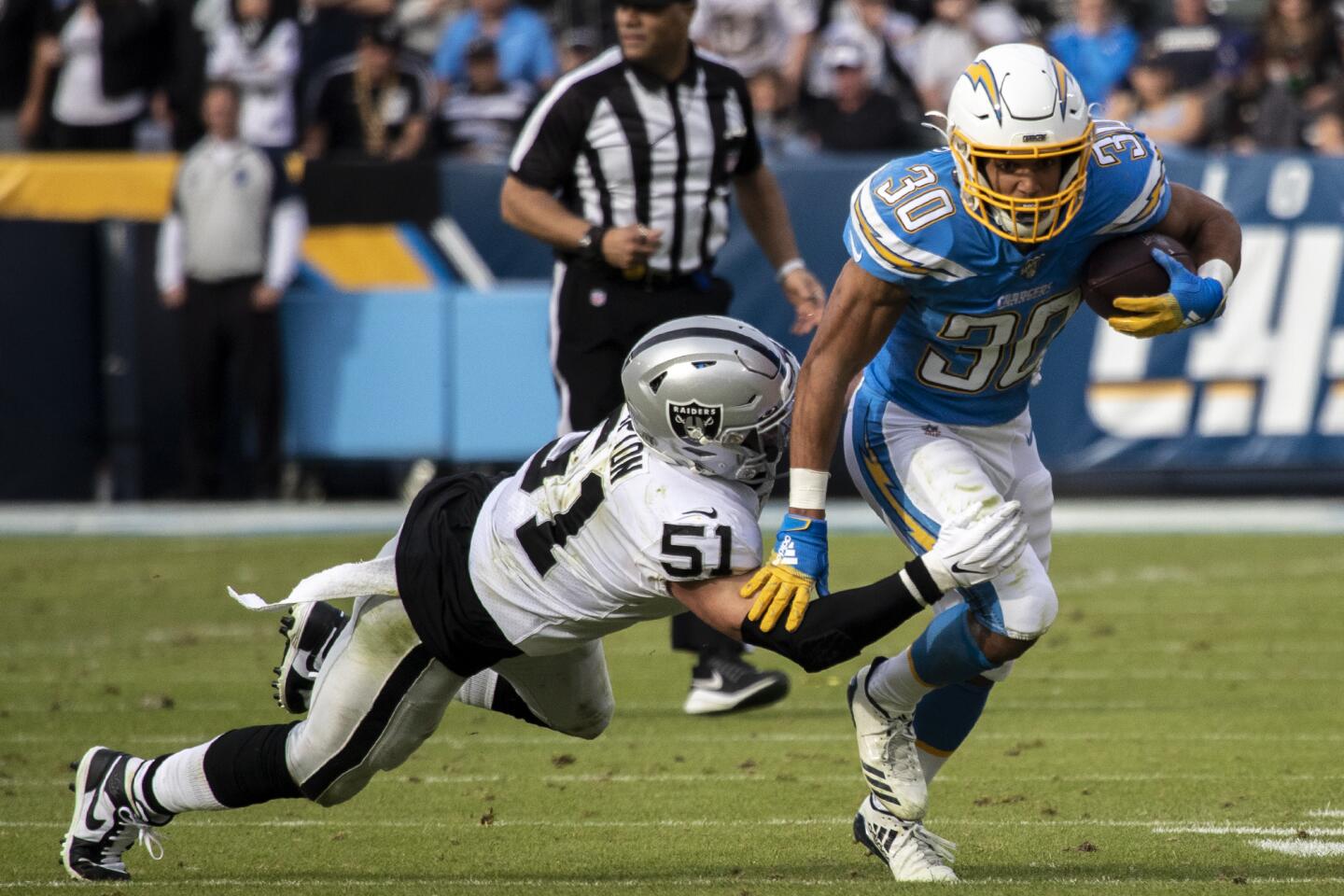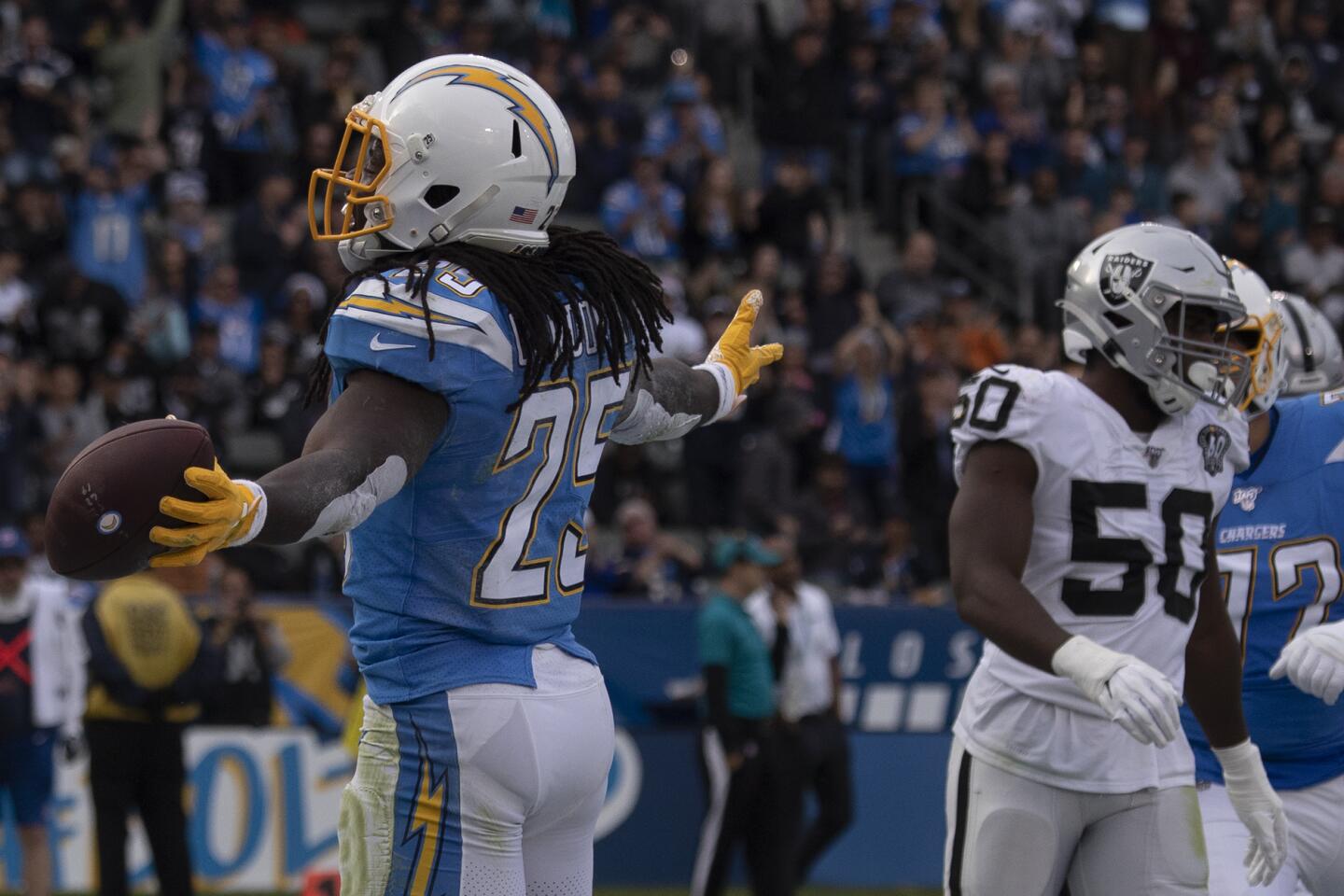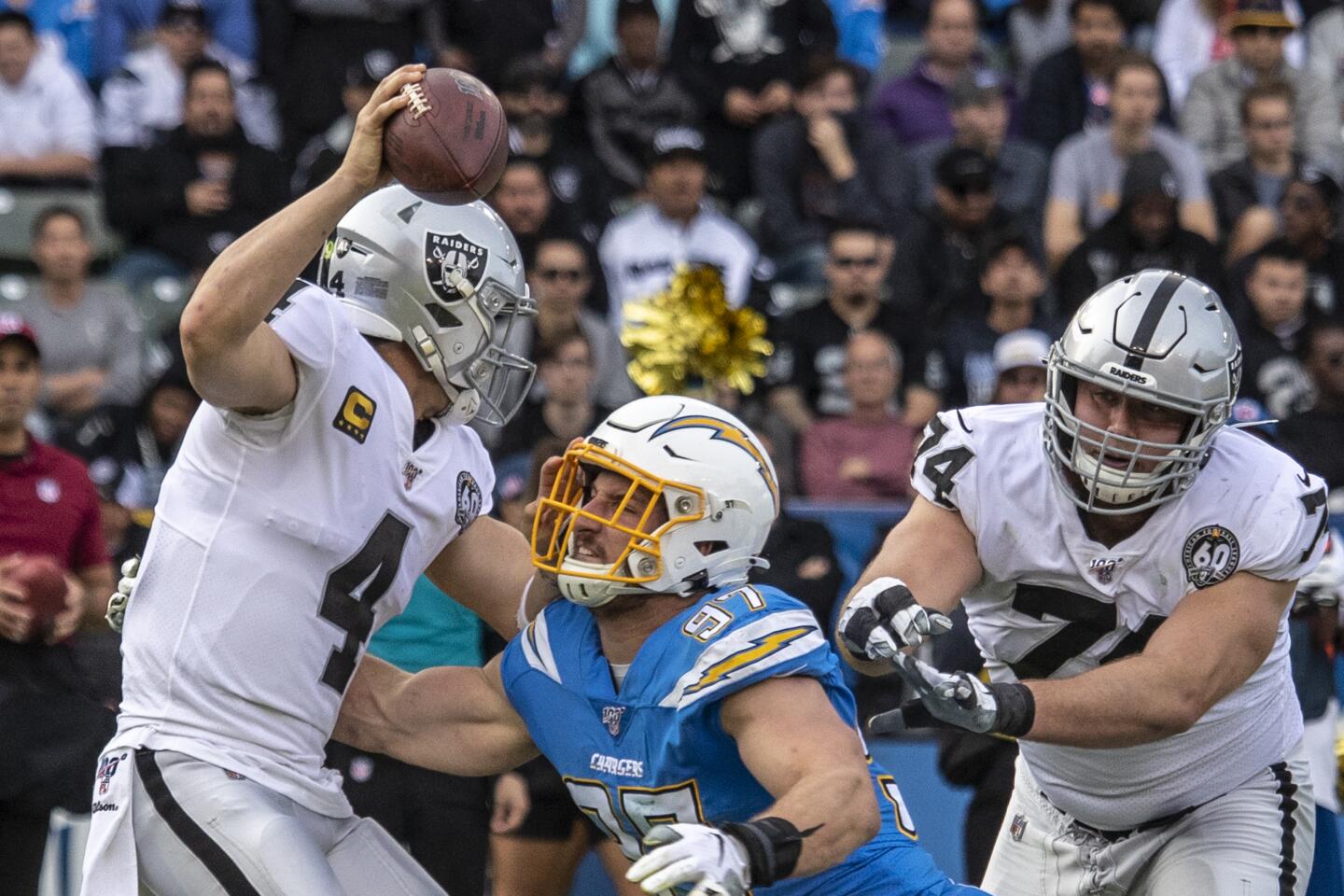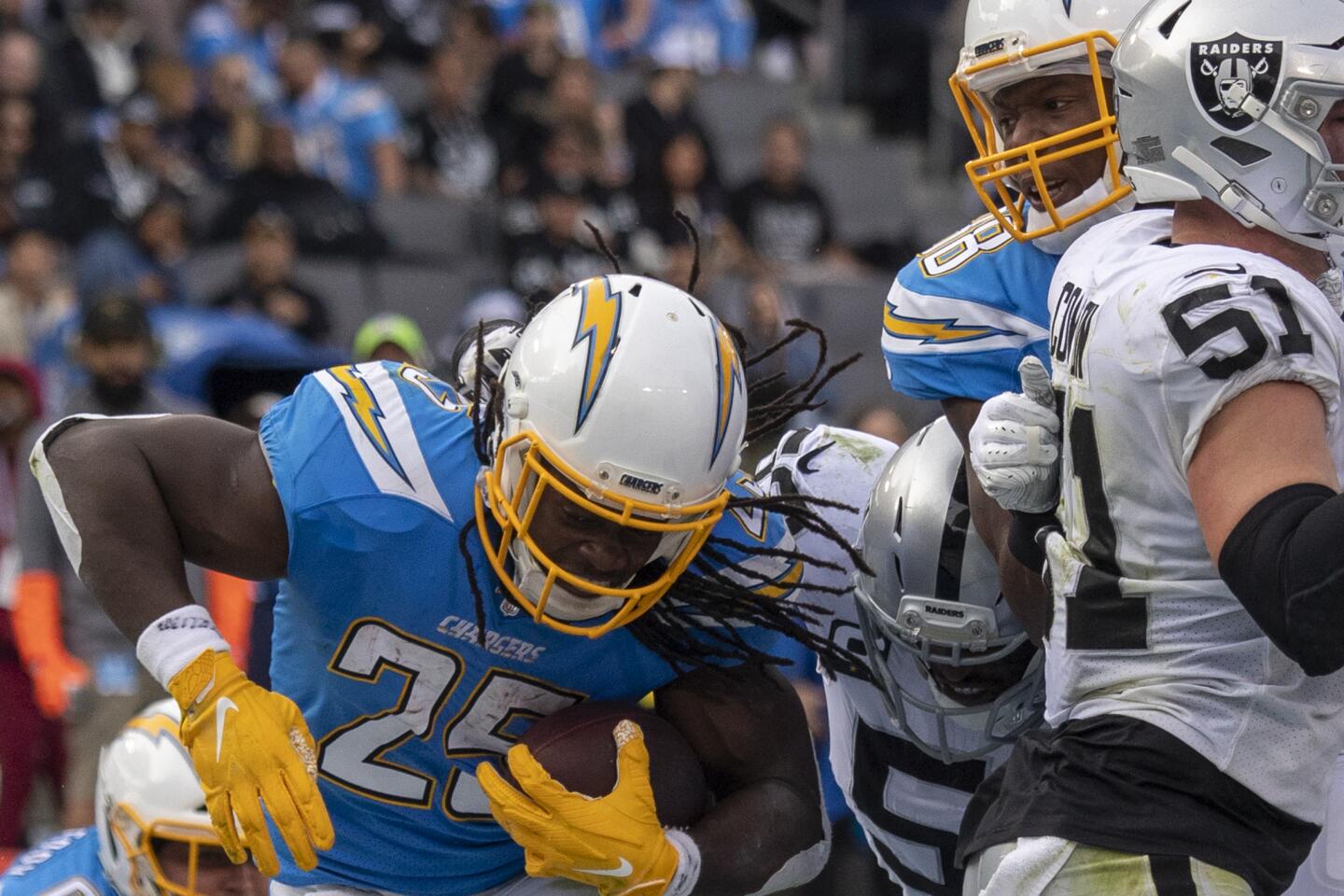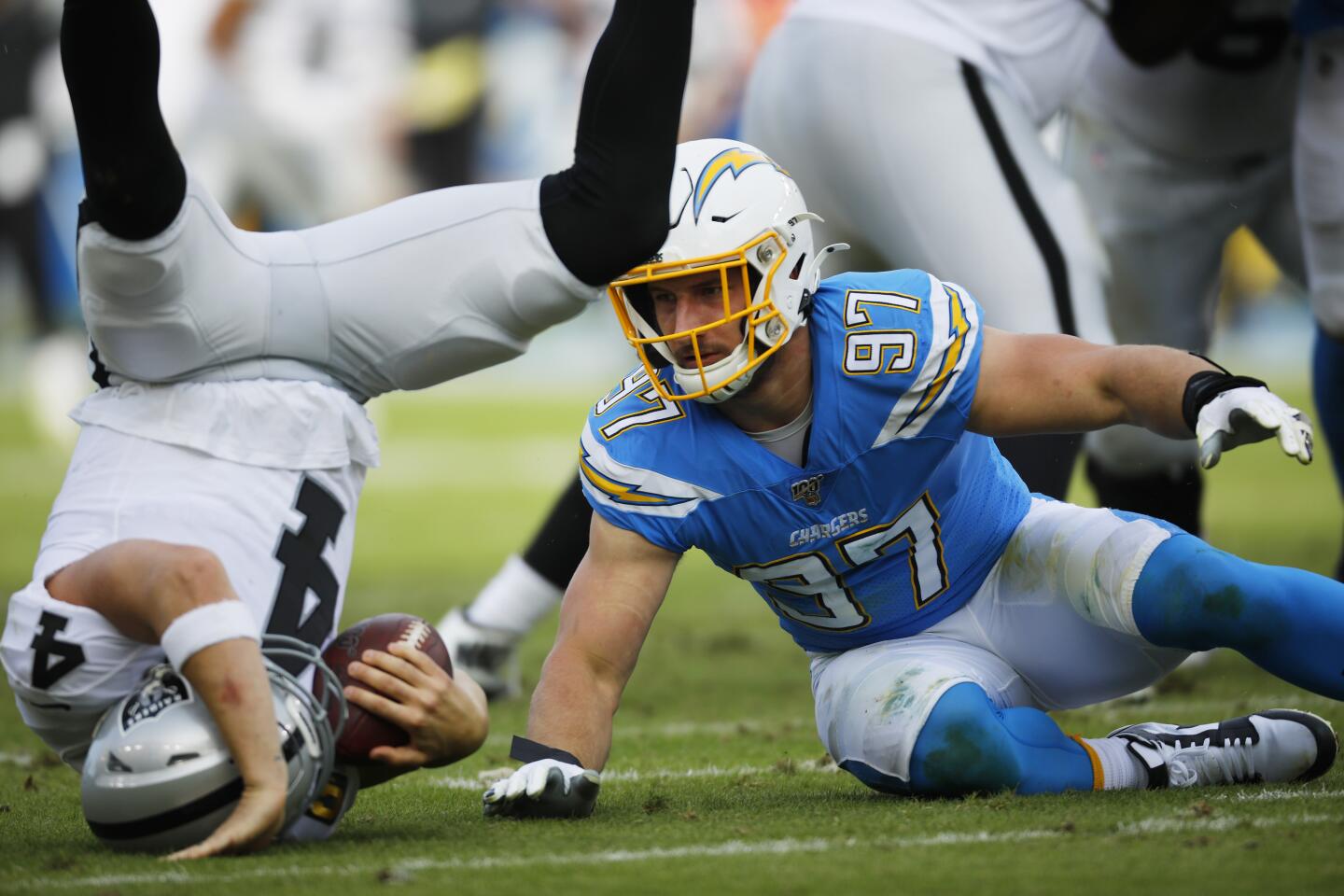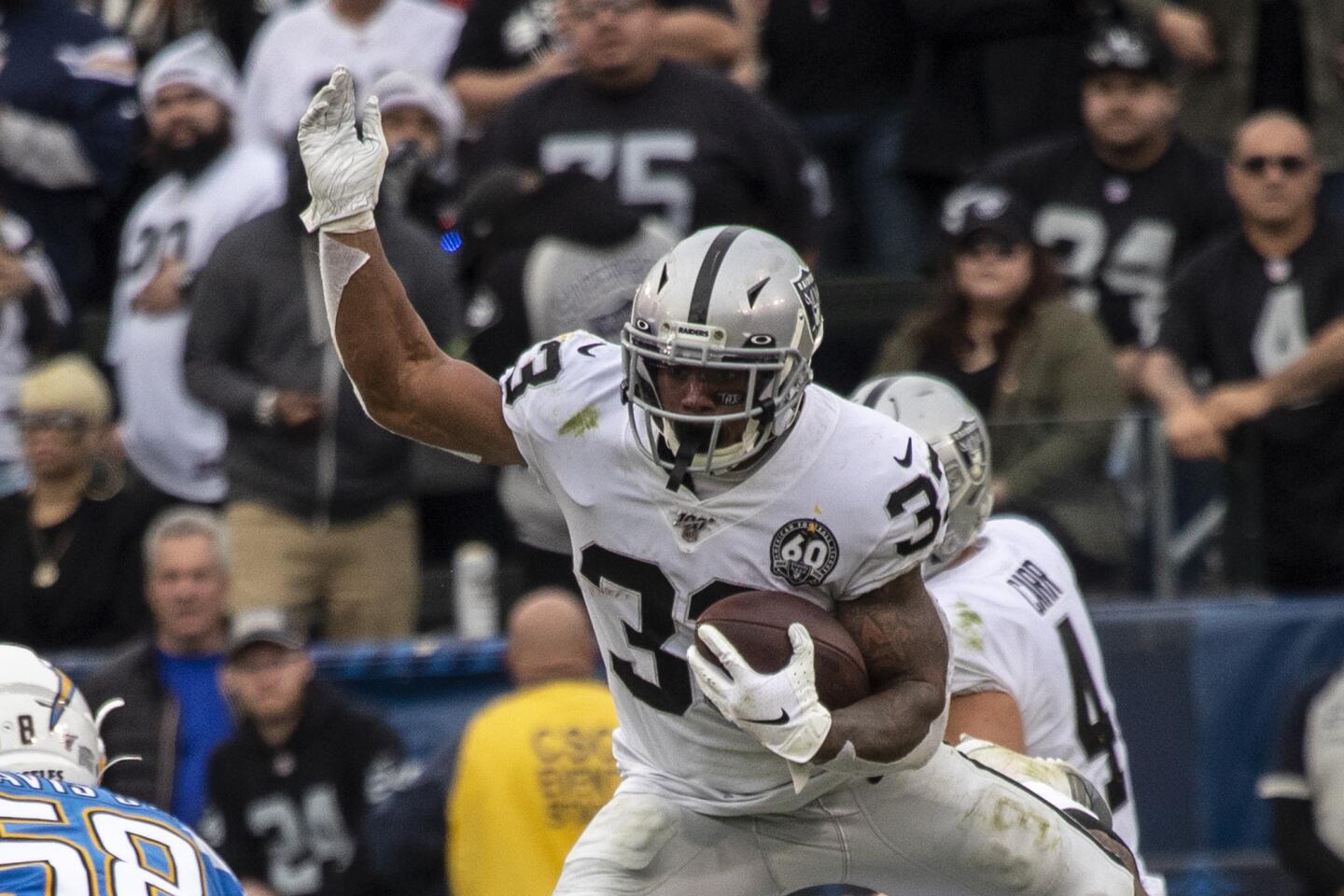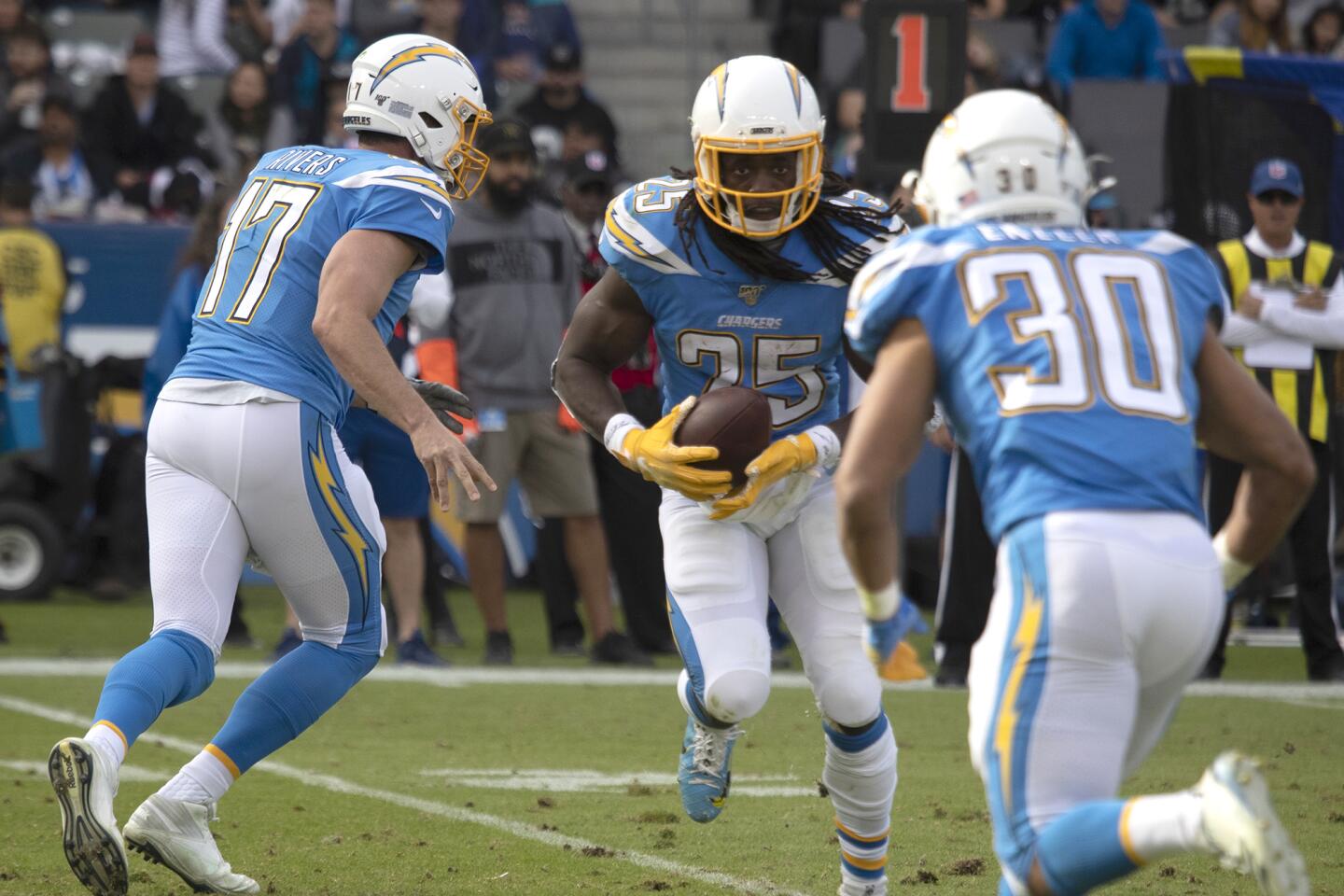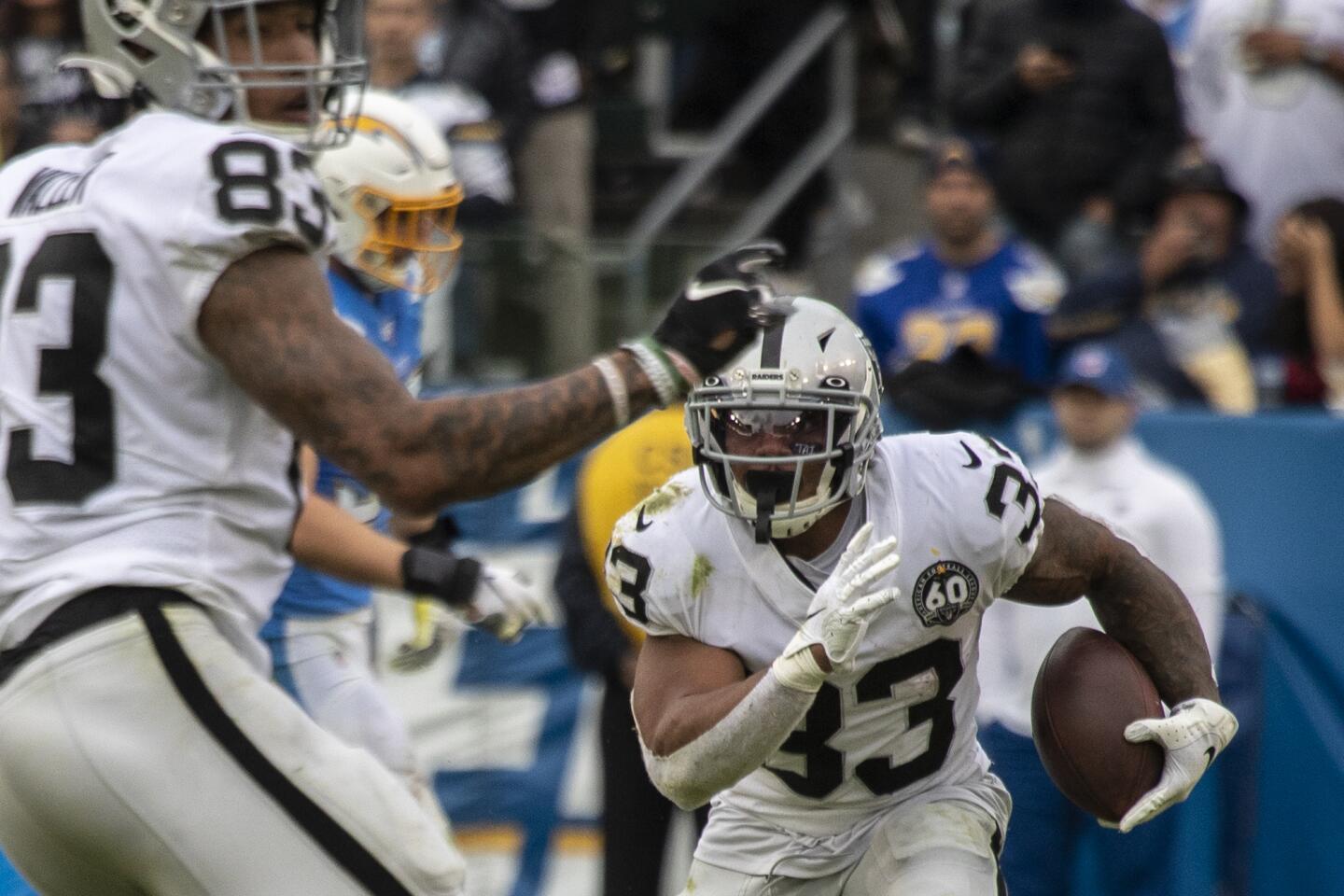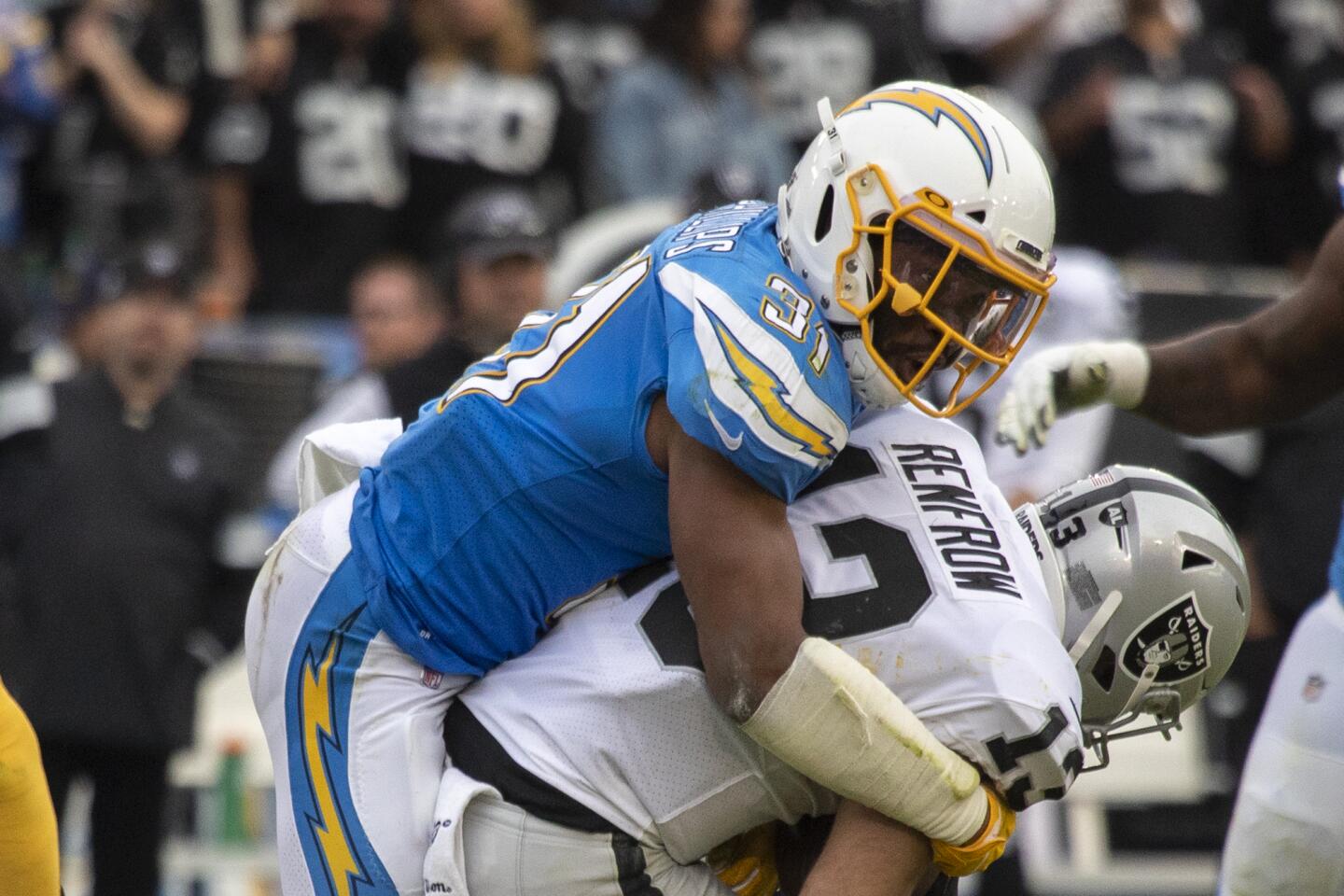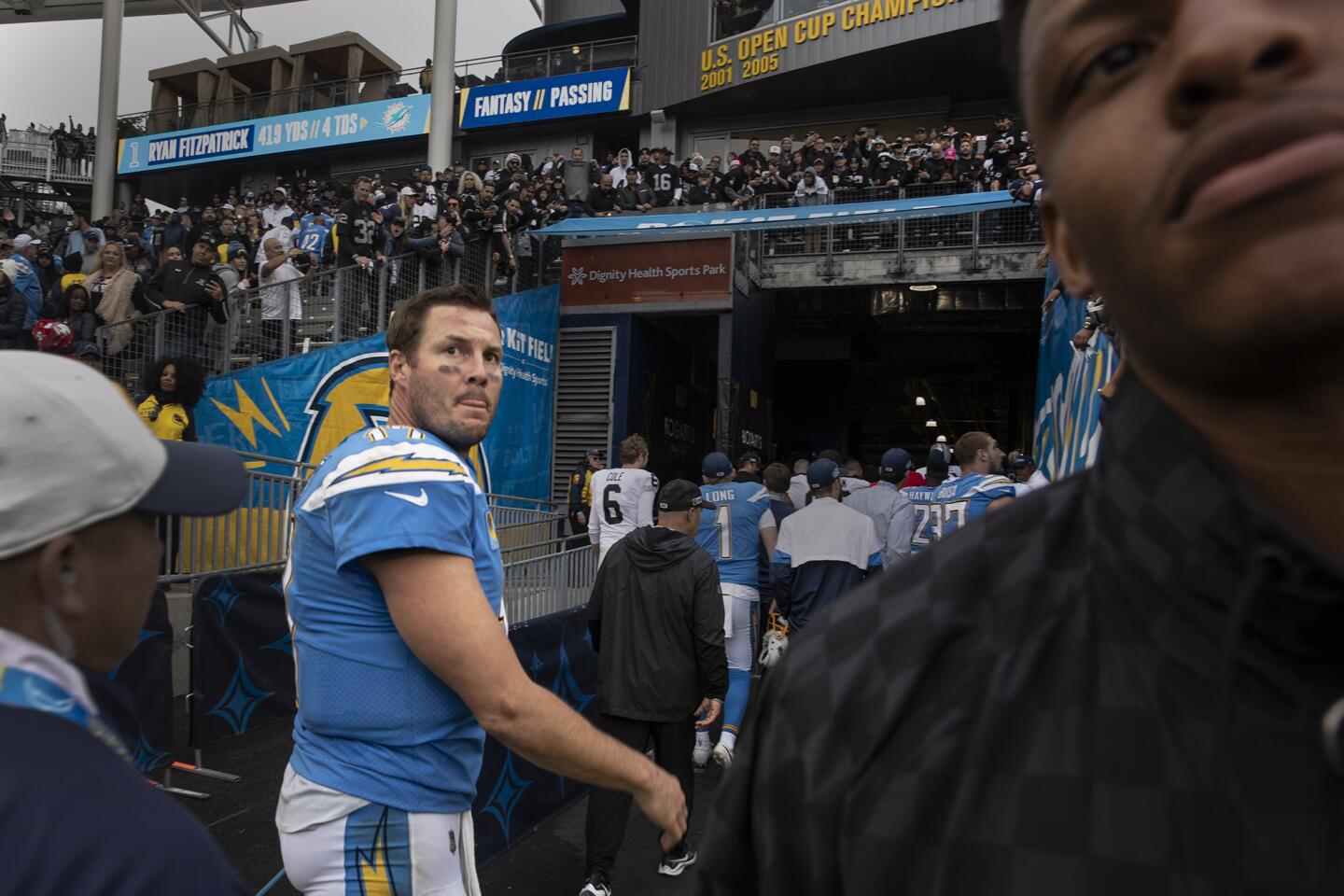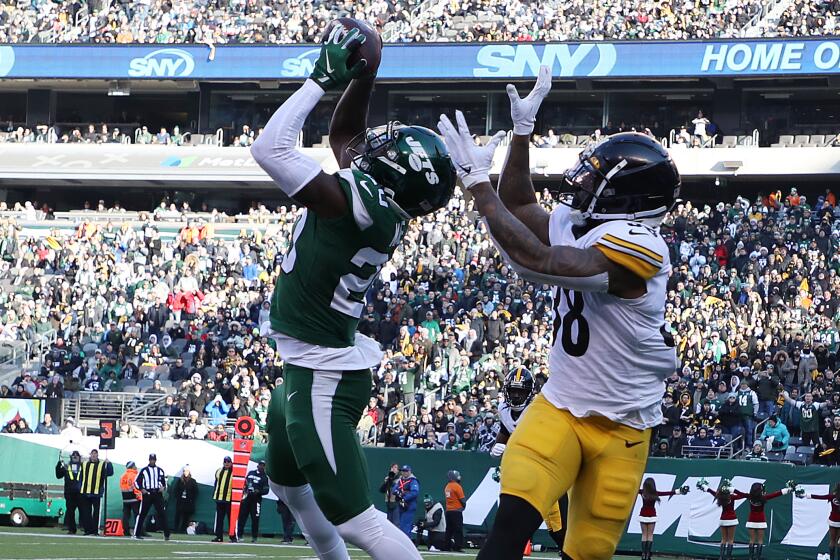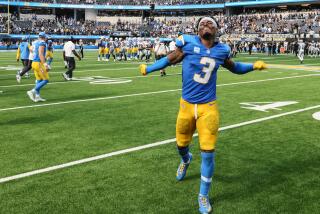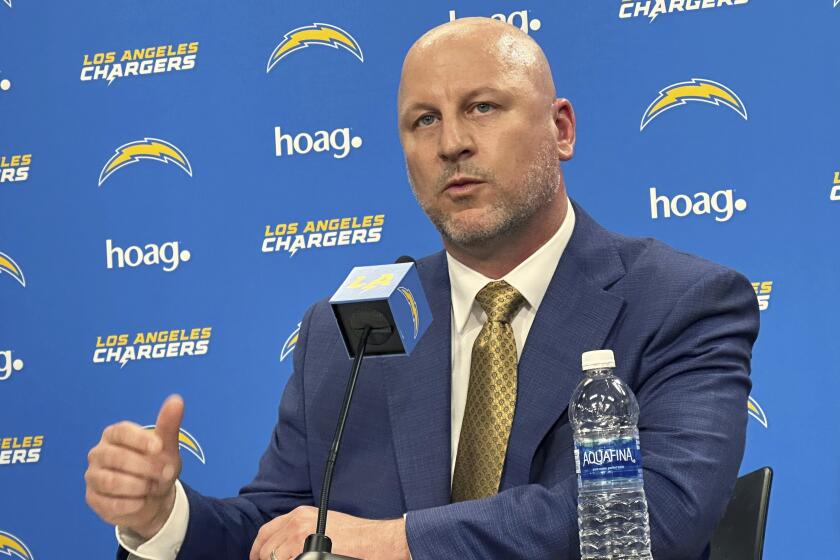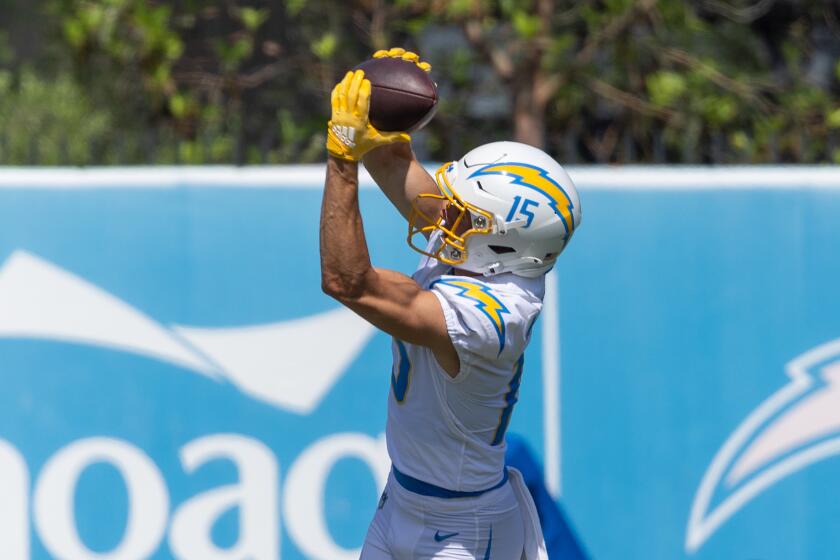Philip Rivers admits Chargers’ support at home is ‘pretty bad’ after loss to Raiders
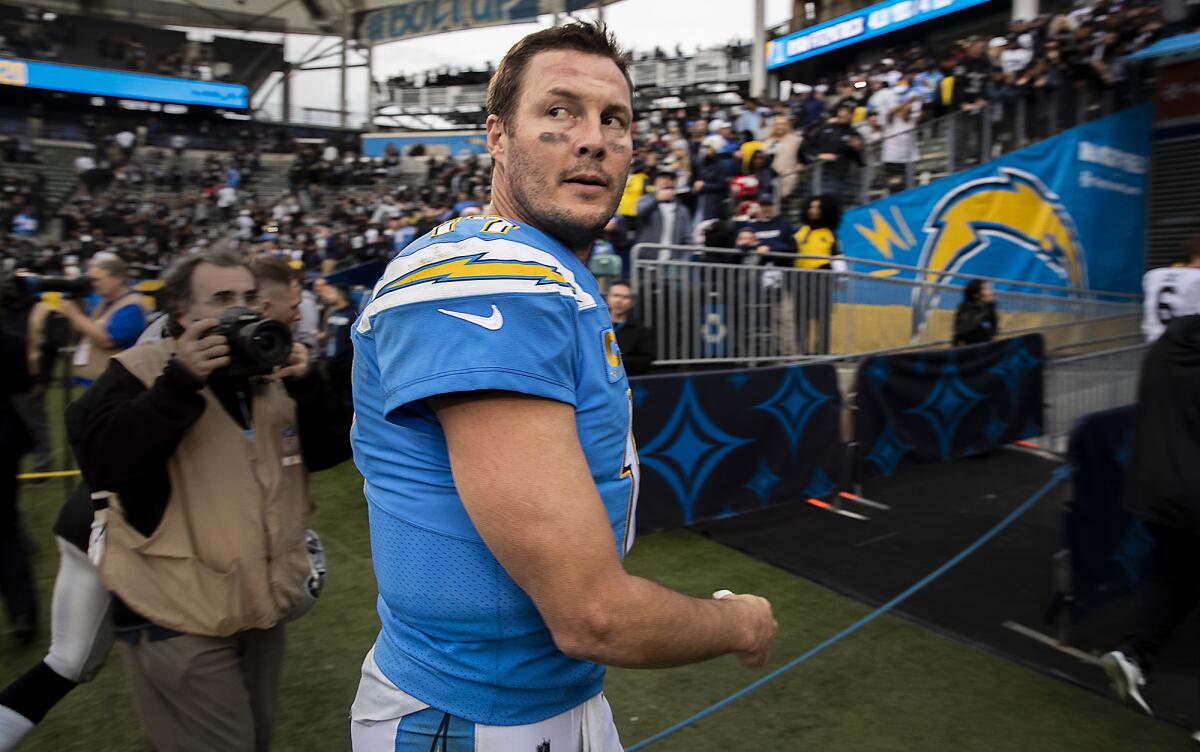
He broke through for his team — finally — reaching the end zone to end nearly an entire first half’s worth of misplays and lacking production.
The score was about to be tied, and maybe this was the instant that the Chargers were going to seize control.
Melvin Gordon, ready to celebrate the occasion en masse and ignite the moment, held his arms out wide and looked up toward the seats at Dignity Health Sports Park.
Then, he did nothing more.
“I caught myself trying to pump up the crowd today after I scored,” Gordon explained later. “I realized it was all black jerseys and I was like, ‘Man, it’s not a home game.’ ”
Technically, this was the Chargers’ home Sunday. But, by every conceivable measure, this was the Oakland Raiders’ house.
In their final game ever in a venue built for soccer, the Chargers were rudely booted aside, again treated like unwanted guests in a foreign place.
They lost 24-17 in the NFL’s most awkward environment, and the decidedly titled stadium wasn’t the only troubling aspect.
The Chargers gained only 19 rushing yards on 16 tries. Their first three possessions each lasted just three plays before punting. They didn’t get a first down until the final five minutes of the first half.
“They played with more heart,” Gordon said. “That’s just what it was. You know, I thought it’d be different. I thought we were going to be the ones to come out with the fire and the passion, and it was different.”
The Chargers will not win a Super Bowl with Philip Rivers as their quarterback, so the team needs to make a difficult — and right decision — to not re-sign him.
The Raiders did have more incentive. They improved to 7-8 and — thanks to the rest of the NFL’s results Sunday — kept alive playoff hopes that seemed to be an extreme long shot when this game kicked off.
But the Chargers, even while tumbling to 5-10, were forecast to be a greater challenge than this to an Oakland team that entered without its 1,000-yard running back and beaten up along the offensive line.
They were favored comfortably early in the week and the odds shifted more in their favor as the Raiders’ injuries mounted in advance of Sunday.
Yet, Oakland scored on its first possession, never trailed and held the ball for 21 of the 30 minutes of the second half.
“They played harder than us,” Gordon said. “There’s not much more you can say … In the first half, we just didn’t come out with a passion. It showed. They hopped on us and we couldn’t get the lead back.”
The most symbolic sequence happened immediately. The Chargers committed penalties — a false start by Gordon and an illegal use of hands by left tackle Trey Pipkins — on the game’s first two snaps.
Before they managed to execute a play that even as much as counted, the Chargers had gone backward 15 yards.
Later in the first quarter, defensive back Desmond King missed a tackle on wide receiver Hunter Renfrow to gift the Raiders a 56-yard touchdown.
On a third-and-one midway through the second quarter, the Chargers tried a trick play that involved bringing in backup quarterback Tyrod Taylor … and lost yardage.
Early in the second half, on another third-and-one, quarterback Philip Rivers passed in the direction of Keenan Allen and nearly hit him in the back of the head. Instead of running a route, Allen was blocking.
“They dictated the pace of this game,” coach Anthony Lynn said. “They outplayed us. We lost too many one-on-ones and critical situations.”
The Chargers have dropped five of six games overall. They lost their final two at Dignity Health Sports Park. They will finish a disappointing season next weekend in Kansas City.
In 2020, they’ll join the Rams in the new SoFi Stadium in Inglewood.
The Pittsburgh Steelers’ aspirations of making the playoffs were dealt a significant setback following their 16-10 loss to the New York Jets.
That move can’t come soon enough for a franchise that relocated from San Diego before the 2017 season and has struggled to establish itself in a new market.
“I think that would be an excuse and a crutch for us to say that’s had an effect on our play,” Rivers said of the lopsided crowds in Carson. “But it’s certainly not ideal.”
The Chargers finished 11-11 in the stadium known as StubHub Center during their first two seasons. They were 14-9 during that same span on the road.
This year, as the losses mounted and the visiting teams arrived with postseason hopes still intact, the Chargers were subjected to an increased amount of hostility in Dignity Health Sports Park.
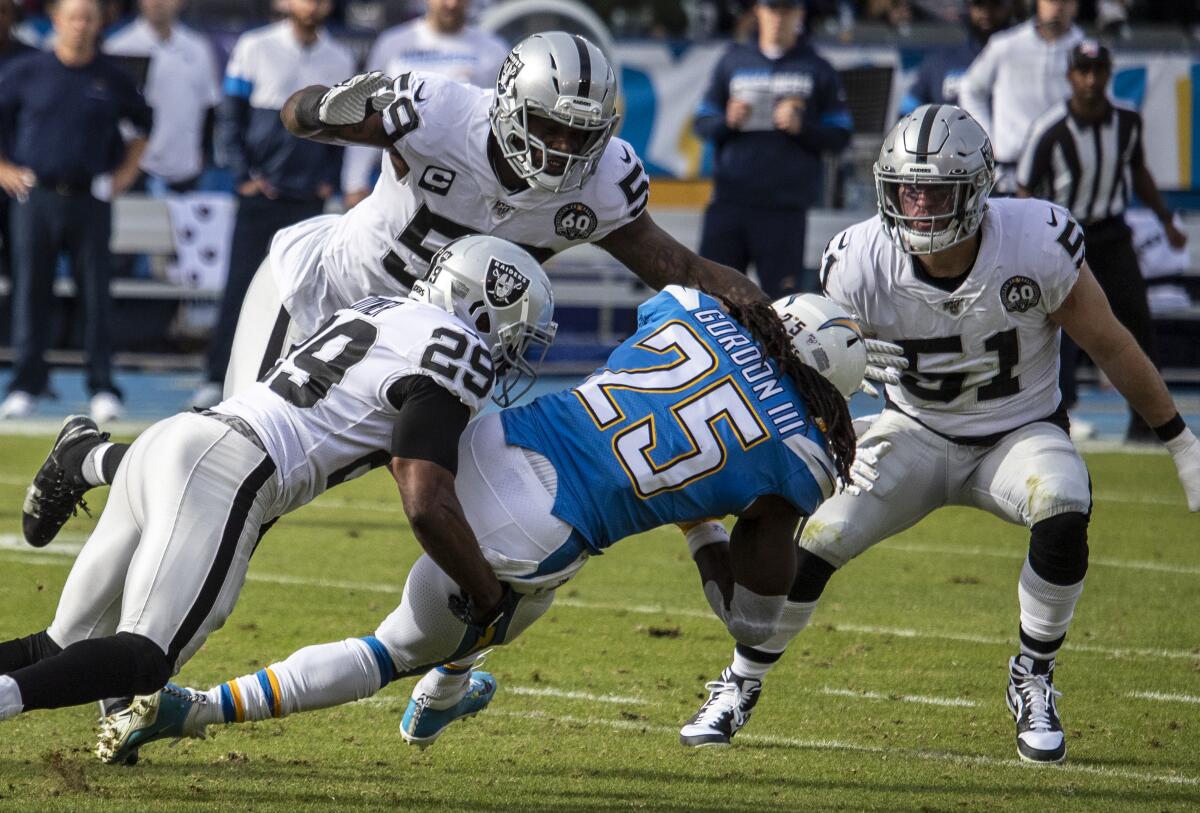
An October loss to Pittsburgh might have been the worst, though a loss last week to Minnesota and this game were nearly as bad.
“That didn’t have anything to do with the outcome of the game,” Rivers said. “But, as someone who remembers what it used to be like at home games, it’s pretty bad.
“You appreciate the Chargers fans that are out there. But it is disheartening to say the least. I don’t think all our guys understand that. But the guys that have been here a long time certainly remember what it used to be like.”
Memories — some of them good but many others not so much — are now all the Chargers have left from this place.
More to Read
Go beyond the scoreboard
Get the latest on L.A.'s teams in the daily Sports Report newsletter.
You may occasionally receive promotional content from the Los Angeles Times.

